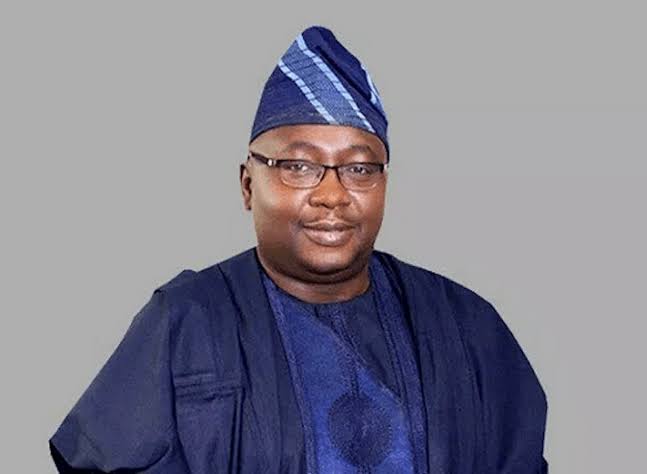Over 40% of Nigerians Now Enjoy 20 Hours of Daily Power, Says Adelabu

The Minister of Power, Adebayo Adelabu, has announced that over 40% of Nigerians now enjoy more than 20 hours of electricity daily.
He made this statement on Sunday while reviewing the activities of the Ministry of Power over the past year.
Adelabu highlighted that these achievements form part of the government’s broader initiative to provide consistent electricity to homes and industries nationwide.
He outlined various measures taken by the Ministry of Power to accomplish this, including a notable increase in power generation, now surpassing 5,500 megawatts.
The minister stated that the ministry is committed to further enhancements before the year concludes.
He explained: “When we resumed, the installed generation capacity was 13,000 megawatts, but only around 4,000 megawatts were being produced, transmitted, and distributed across the country.
“This was inadequate given our population size and level of economic activity, so we were determined to improve the situation.
“At that time, supply was erratic, and nearly all customers, both residential and commercial, couldn’t rely on 12-15 hours of electricity. Additionally, the adoption of renewable energy sources like solar and wind was minimal.
“Since then, within a year, we have seen considerable progress. Today, our installed capacity exceeds 14,000 megawatts, thanks to the commissioning of the Zungeru hydroelectric power plant and the enhanced capacity of several existing plants.
“More importantly, we are now generating over 5,500 megawatts of electricity, which we transmit and distribute, with over 40% of customers enjoying more than 20 hours of reliable power supply. The improvement from when we started is clear, and we aim to build on this success.”
He attributed this progress to infrastructural upgrades, including the completion of the Zungeru hydroelectric power plant and the implementation of the Presidential Power Initiative. He also pointed out the new Electricity Act signed in June 2023, which decentralised and liberalised the power sector, allowing states and private firms to engage in electricity generation, transmission, and distribution.
Plan to install 10 million meters in five years
Despite the advancements, Adelabu acknowledged ongoing challenges in the sector, such as the substantial metering gap, with millions of Nigerians still lacking meters.
He highlighted the Presidential Metering Initiative, aimed at installing 10 million meters over the next five years to tackle this issue.
Adelabu said: “There is a significant metering gap. Out of almost 13 million customers in the industry, over 7 million remain without meters and are subjected to estimated billing. This situation is unsatisfactory.
“We need to address this, which is why President Bola Ahmed Tinubu launched the Presidential Metering Initiative, tasked with installing over 10 million meters in five years—at least 2 million each year. Progress is being made, and funds are being allocated. We will soon begin acquiring these meters to bridge the gap.”
He added that this initiative, alongside support from the World Bank and the African Development Bank (AfDB), will improve billing transparency and efficiency.
Adelabu reassured the public that the Ministry of Power remains committed to further enhancing Nigeria’s electricity supply.






